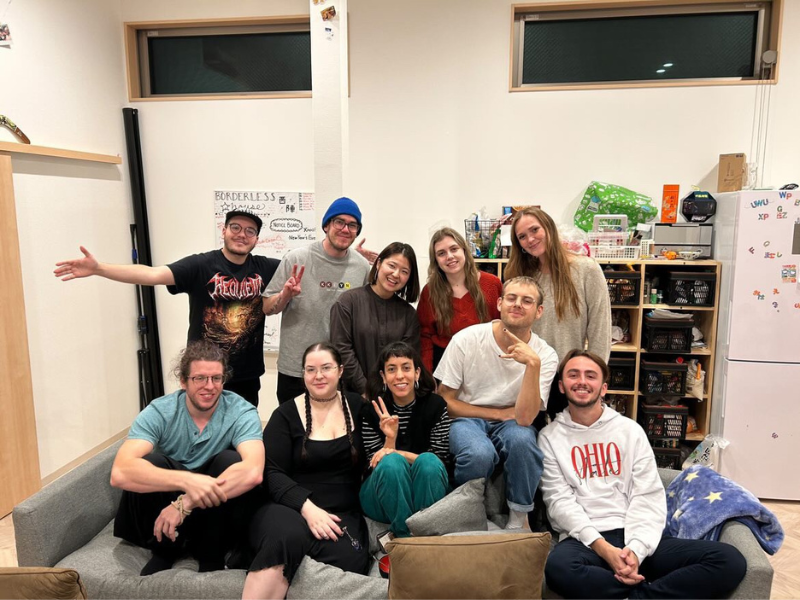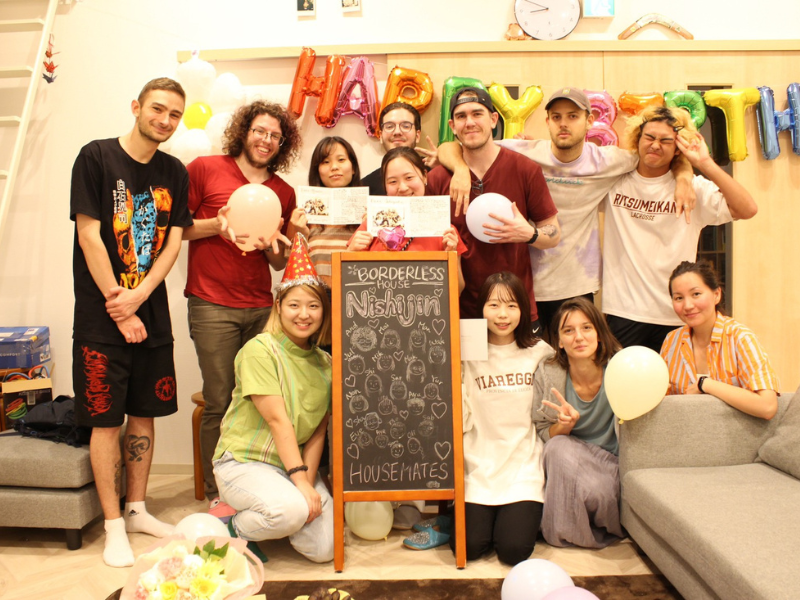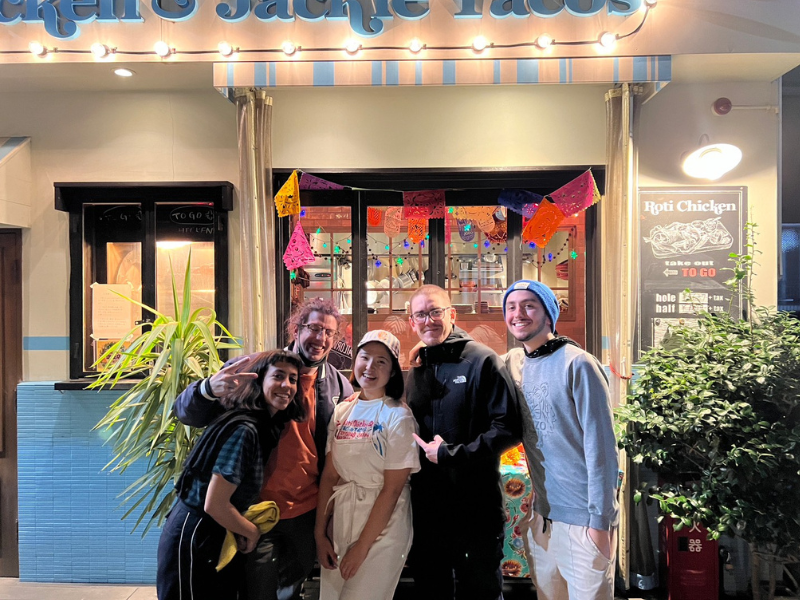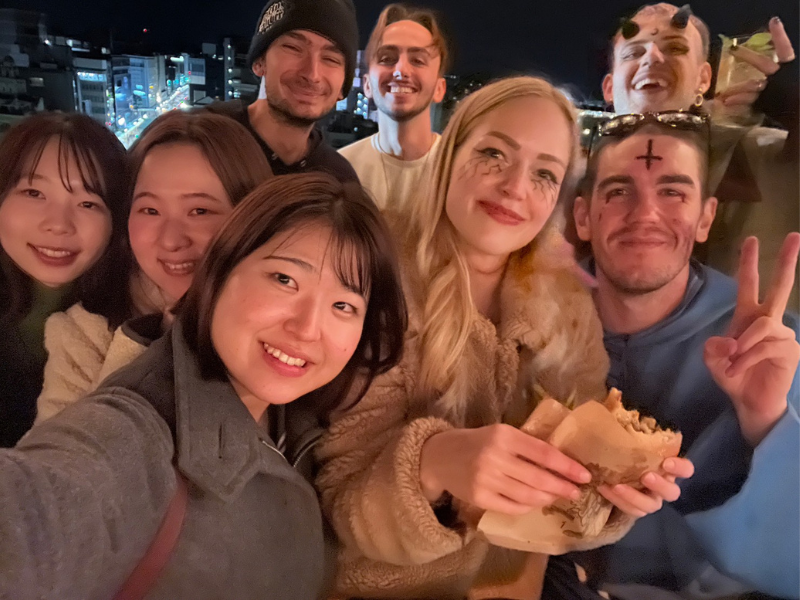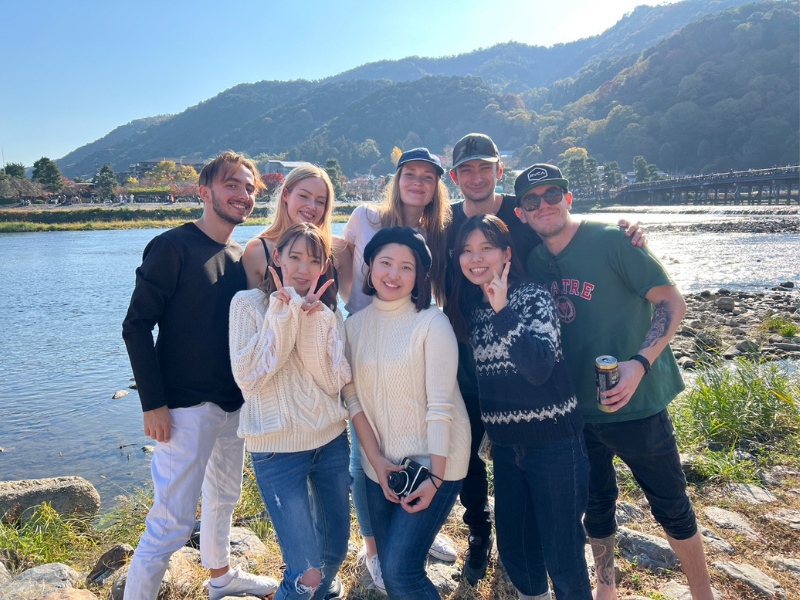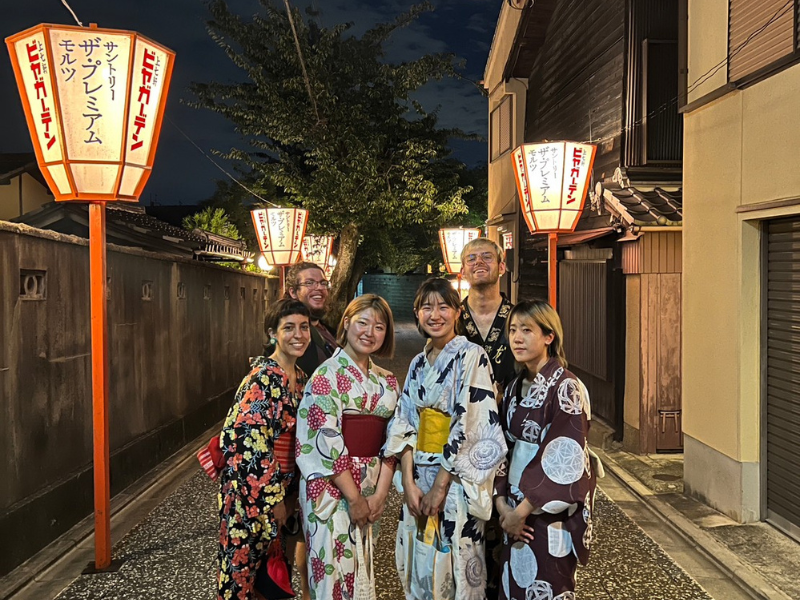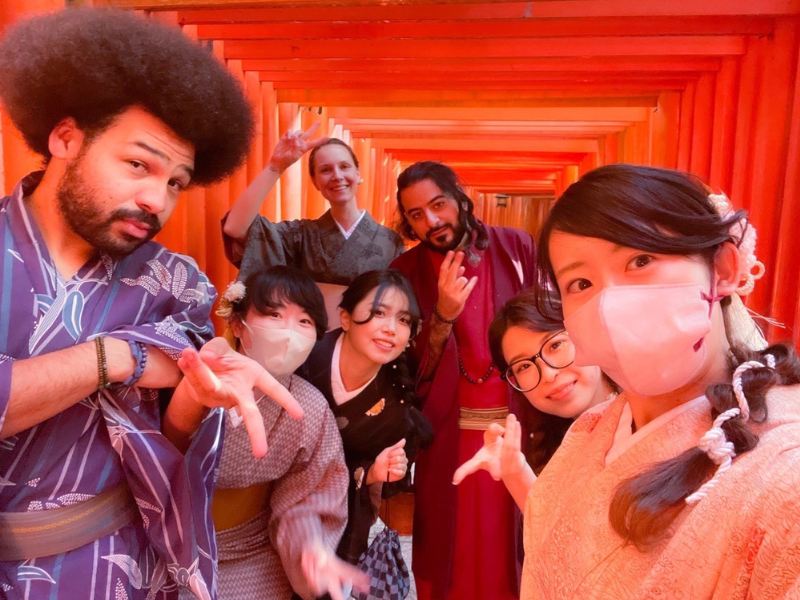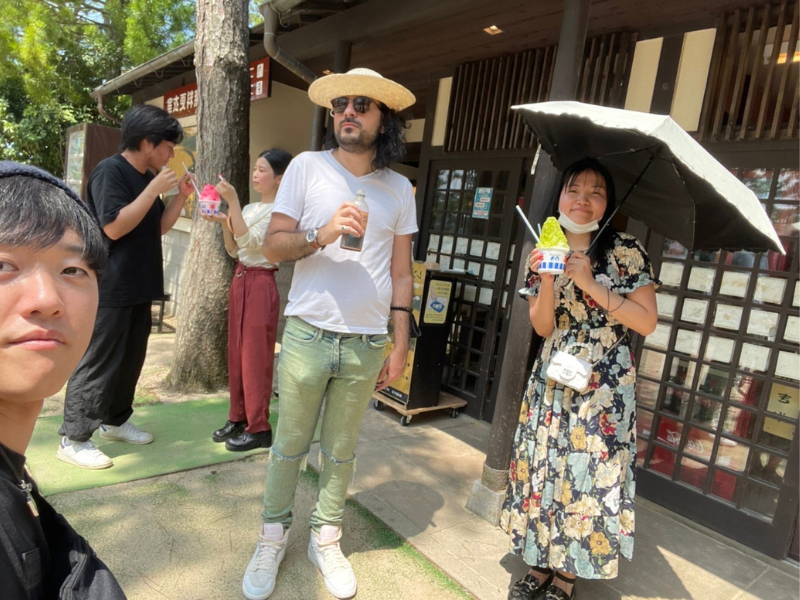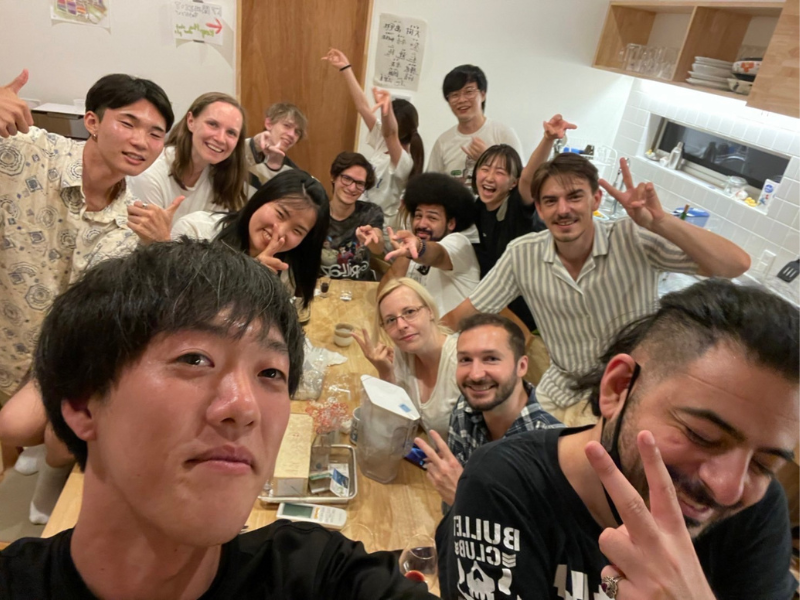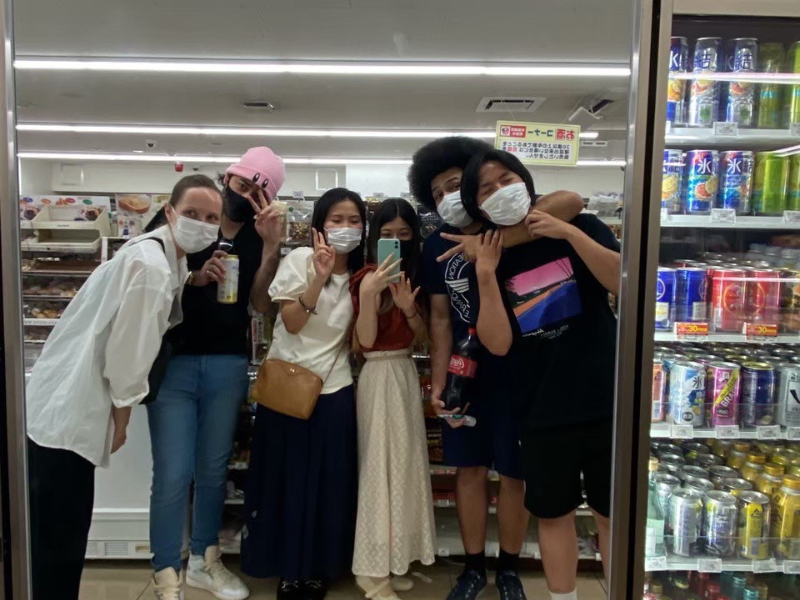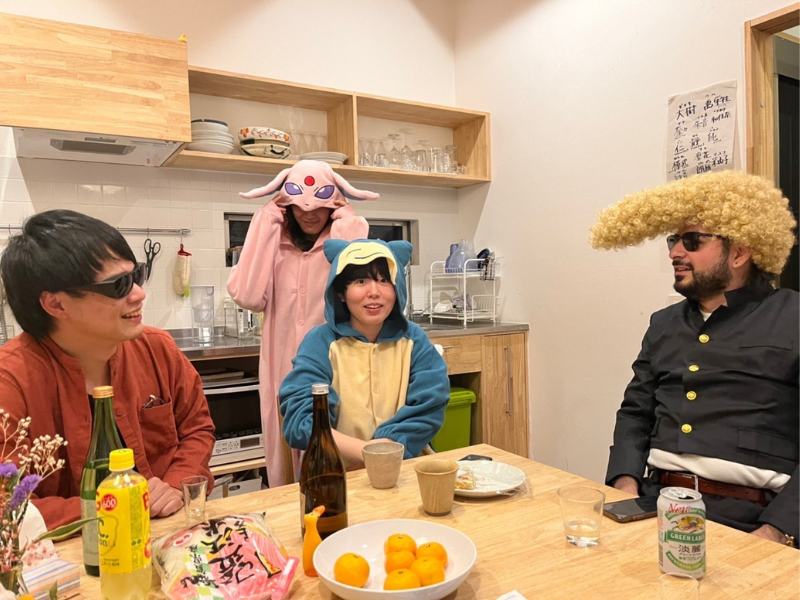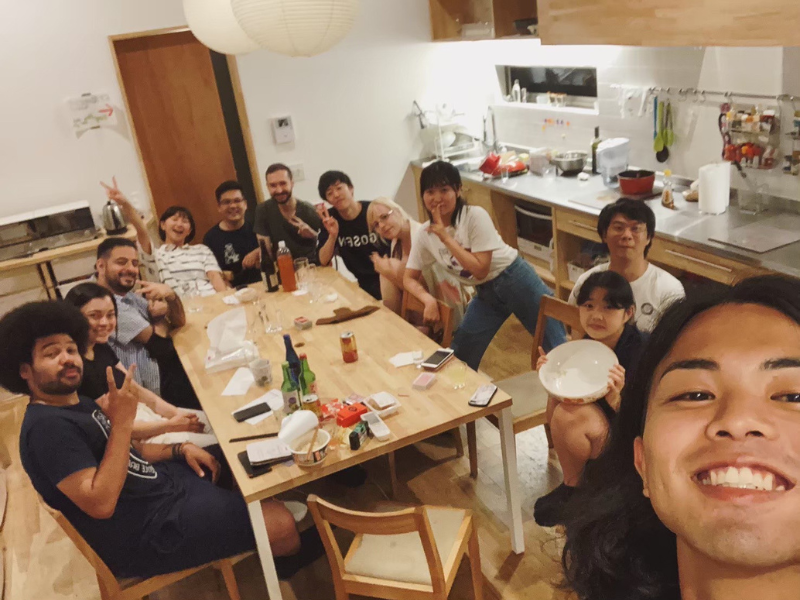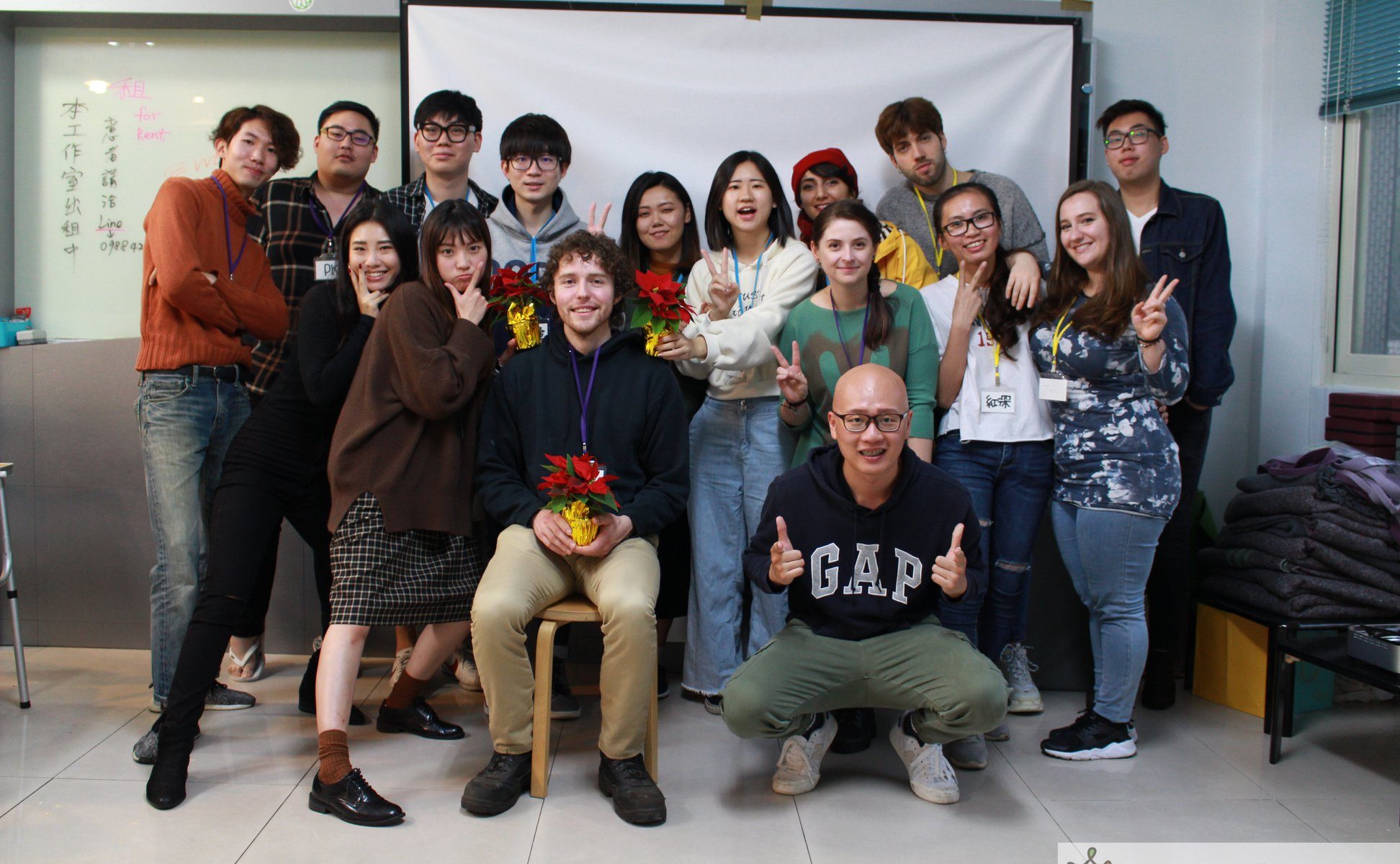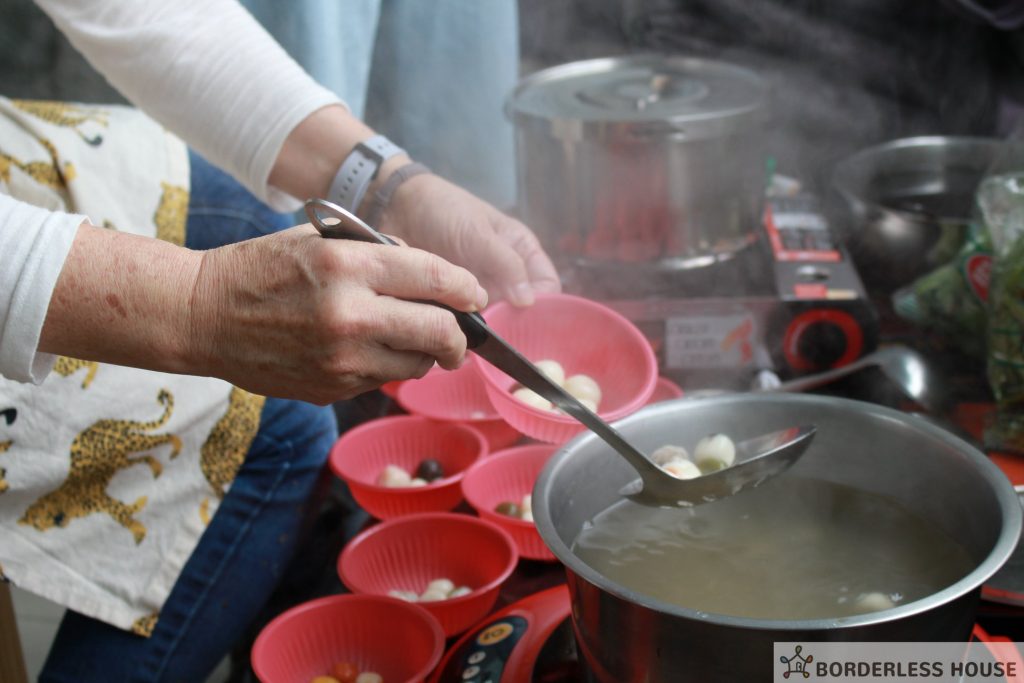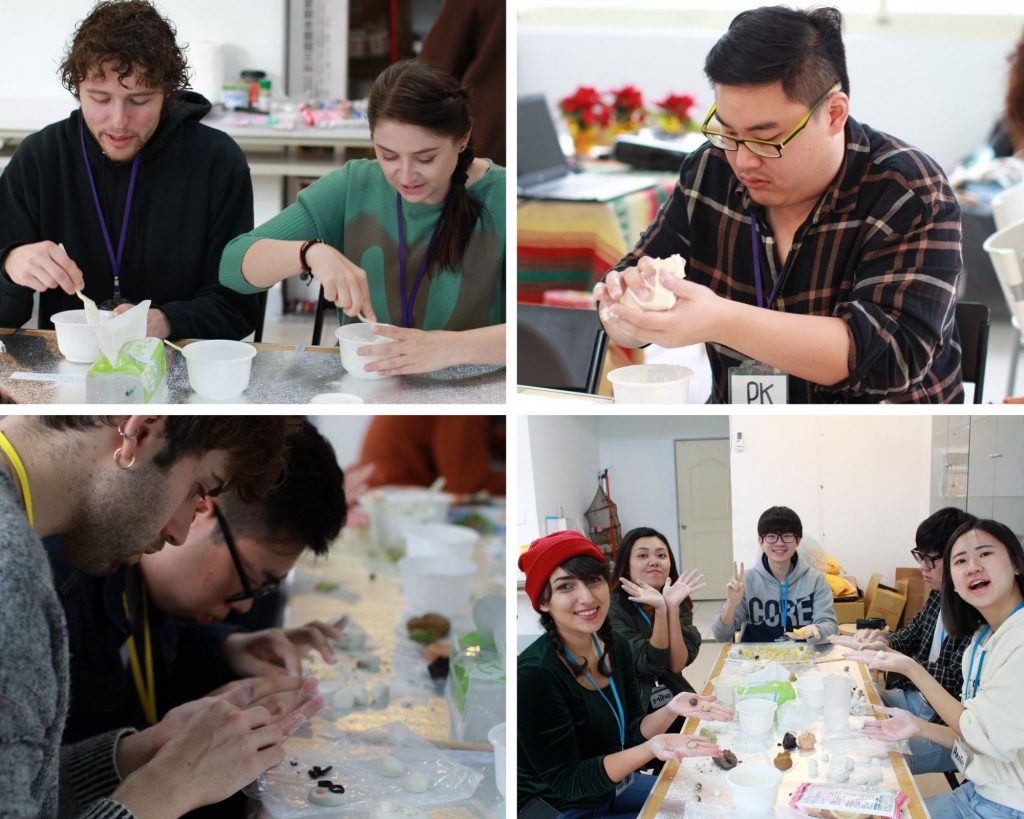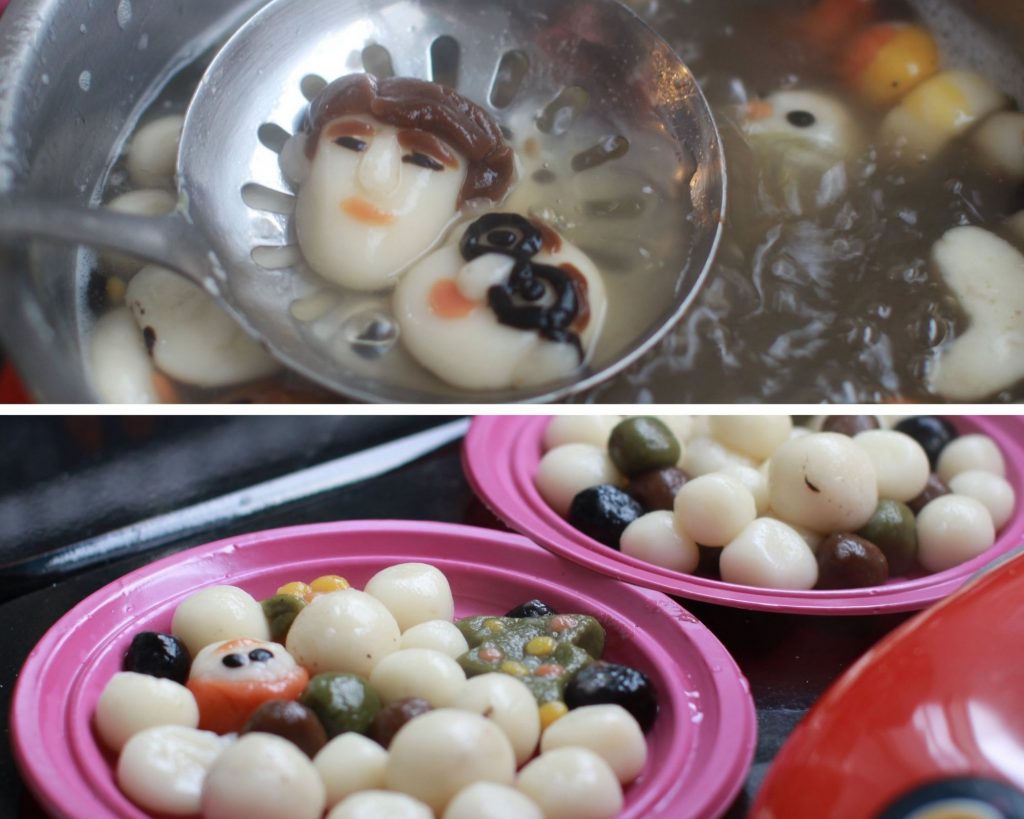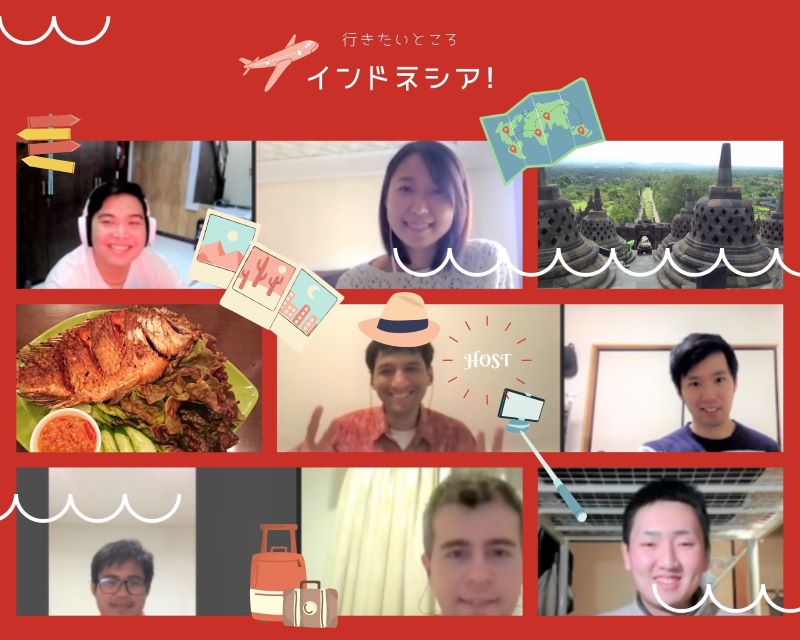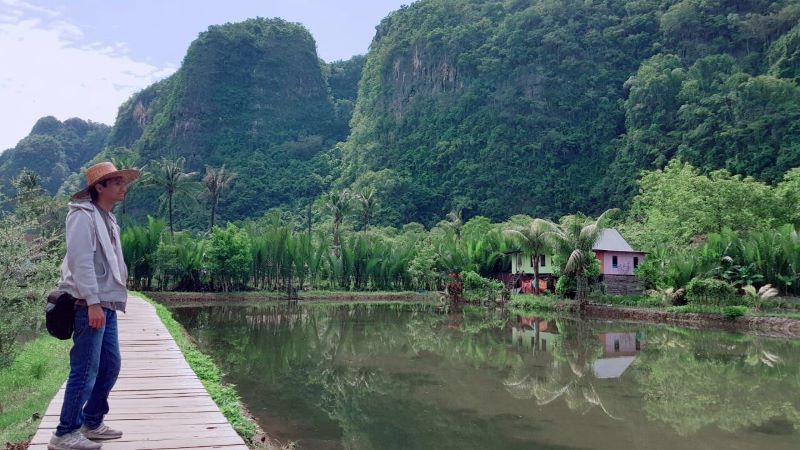Hello everyone! Welcome to Borderless House.
We often rave about how “the exchange is lively!” and “every day is an international interaction!” However, we thought many of you might be curious about what life really looks like for the Japanese residents living in such a vibrant environment.
So, we decided to sit down with Shota, a Japanese housemate currently living in Ikebukuro Oyama House, for an exclusive interview! Shota shared with us why he chose Borderless House, his day-to-day experiences filled with international exchanges, and his recommendations for who would enjoy living in Ikebukuro Oyama House. His insights offer a unique perspective that only a senior housemate could provide.
This interview turned out to be a fantastic piece that truly conveys the joy of living in a Borderless House. We hope you enjoy reading it as much as we did!
Building Deep Connections with International Friends
───Why Shota Chose Borderless House
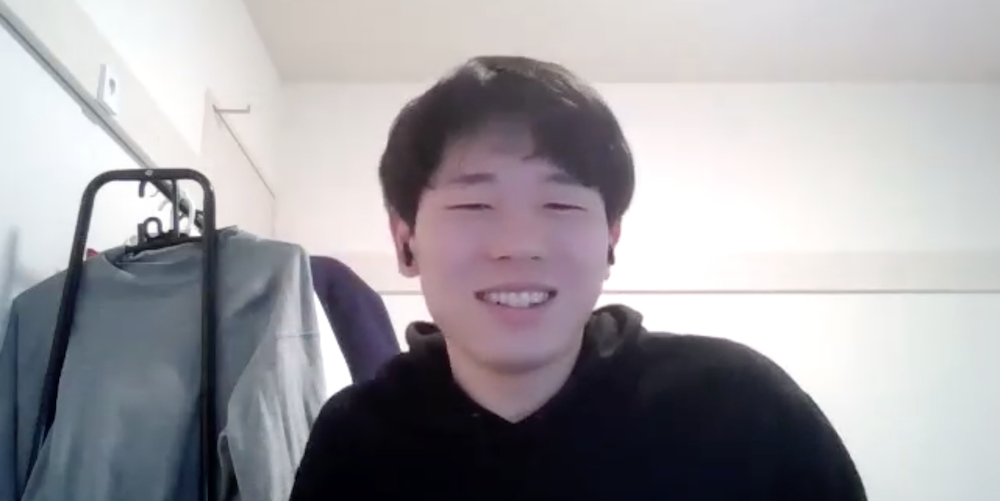
When asked why he decided to move into Borderless House, Shota shared a compelling story. The spark of interest was ignited by a university classmate who had lived in one of the Borderless Houses. What struck Shota most was how much his friend missed the place and the deep connections he had made with friends from around the world after moving out. “The chance to build such deep relationships with international friends seemed rare, and that really drew me in,” Shota explains.
Adding to the appeal, Shota is currently attending a flight school with aspirations of becoming a pilot, making the daily English immersion offered by living in a Borderless House particularly attractive. “It’s not just about the classroom learning; being able to familiarize myself with English through everyday life was a big plus for me.” After comparing other share houses, Shota concluded that Borderless House seemed like the most fun and enriching option, leading to his decision to join.
───Choosing Ikebukuro Oyama House: The Reason Behind the Decision
When delving into why he chose Ikebukuro Oyama House among the many options available, Shota highlights a pivotal moment during his search. The recommendation from the staff member who conducted his house tour was the deciding factor. “I visited in June 2023, right after the house had opened, so all the residents were about to start a new chapter of their lives there,” Shota recalls.
The staff member’s advice resonated deeply with him: “While blending into an existing house community has its own charm, there’s a unique excitement in creating a new community from scratch.” Inspired by the prospect of being part of something fresh and building a new community together, Shota was thrilled to choose Ikebukuro Oyama House as his new home.
Life with International Housemates at Ikebukuro Oyama House
Upon being asked about the unique aspects of living in Ikebukuro Oyama House that came to light after moving in, Shota enthusiastically shared his experiences. “Even compared to other houses, I feel like the bond among residents here is particularly strong. There’s always a conversation happening, and we frequently go out together or throw house parties. It’s been fun every day.”
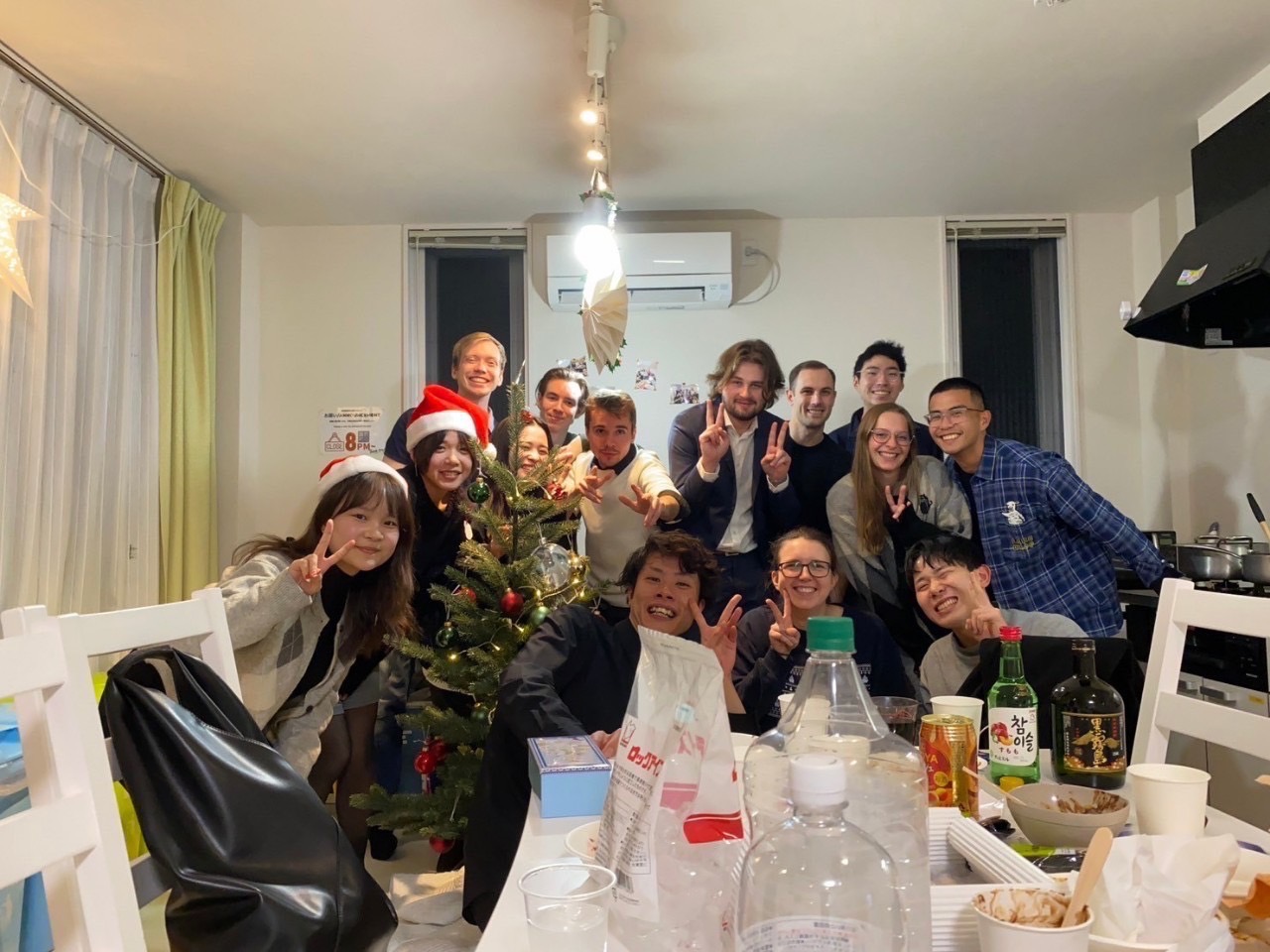
Recalling his early days in the house, Shota admits, “Trying to communicate through nuances, using gestures and all sorts of body language—I remember how desperate I was to make myself understood (laughs).”
───A Memorable Communication Experience
One time, a housemate fell ill, and I accompanied them to the hospital. It was an impactful experience for me. I had to listen to my housemate’s symptoms and convey them to the doctor, then translate the doctor’s diagnosis back to my housemate. Filling out the medical forms was challenging too, as my housemate was unsure what to write. I helped explain each section and assisted with writing the necessary parts in Kanji. Explaining foreign health insurance was incredibly difficult, but looking back, it’s become a valuable memory. It’s an experience I owe to living in Borderless House.
 ▲Becoming Best Friends with Mats After a Hospital Visit
▲Becoming Best Friends with Mats After a Hospital Visit
Shota reflects on how unique experiences, like accompanying a foreign friend to the hospital, are not common in everyday life in Japan. He then recalls another memorable event that helped shape the community at Ikebukuro Oyama House.
“One of my fondest memories is from the first house meeting we had shortly after I moved in. Since the house had just opened, there were no established rules for cleaning, shopping, or other household tasks. We all gathered to discuss and assign roles, establish cleaning standards, and create rules to ensure a comfortable living environment for everyone.
At that time, I was still getting used to communicating in English, so I participated with the support of the Japanese members. The discussion, especially led by the foreign members, became incredibly passionate.”
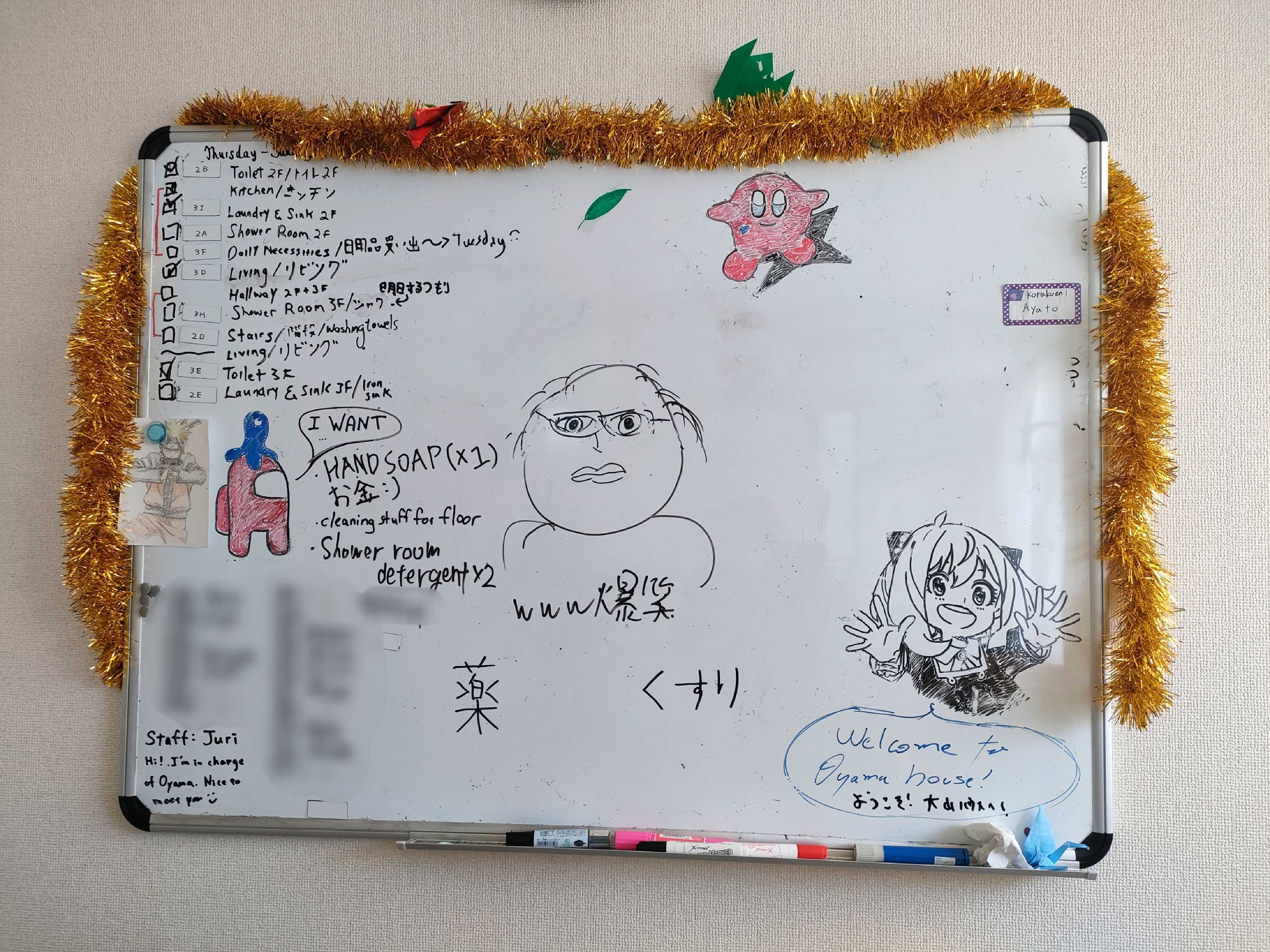 ▲Rotating Cleaning Duties and Passionate Discussions
▲Rotating Cleaning Duties and Passionate Discussions
The system for dividing cleaning responsibilities at Ikebukuro Oyama House is based on a weekly rotation, with a whiteboard used to confirm who is in charge each week. Shota elaborates on the dynamics of these organizational meetings, emphasizing the constructive nature of their discussions.
“It wasn’t about arguing or fighting, but everyone was committed to sharing their opinions and coming to an agreement that satisfied everyone. While we might not have reached a unanimous decision, the process of openly sharing our thoughts, engaging in earnest discussions with our international housemates, and experiencing the heated atmosphere of those debates was incredibly valuable.”
Everyday Fun Turns into Precious Opportunities for Interaction
───One of the most enjoyable experiences was going to DisneySea with a few housemates who were about to graduate from the house. It was incredibly fun!
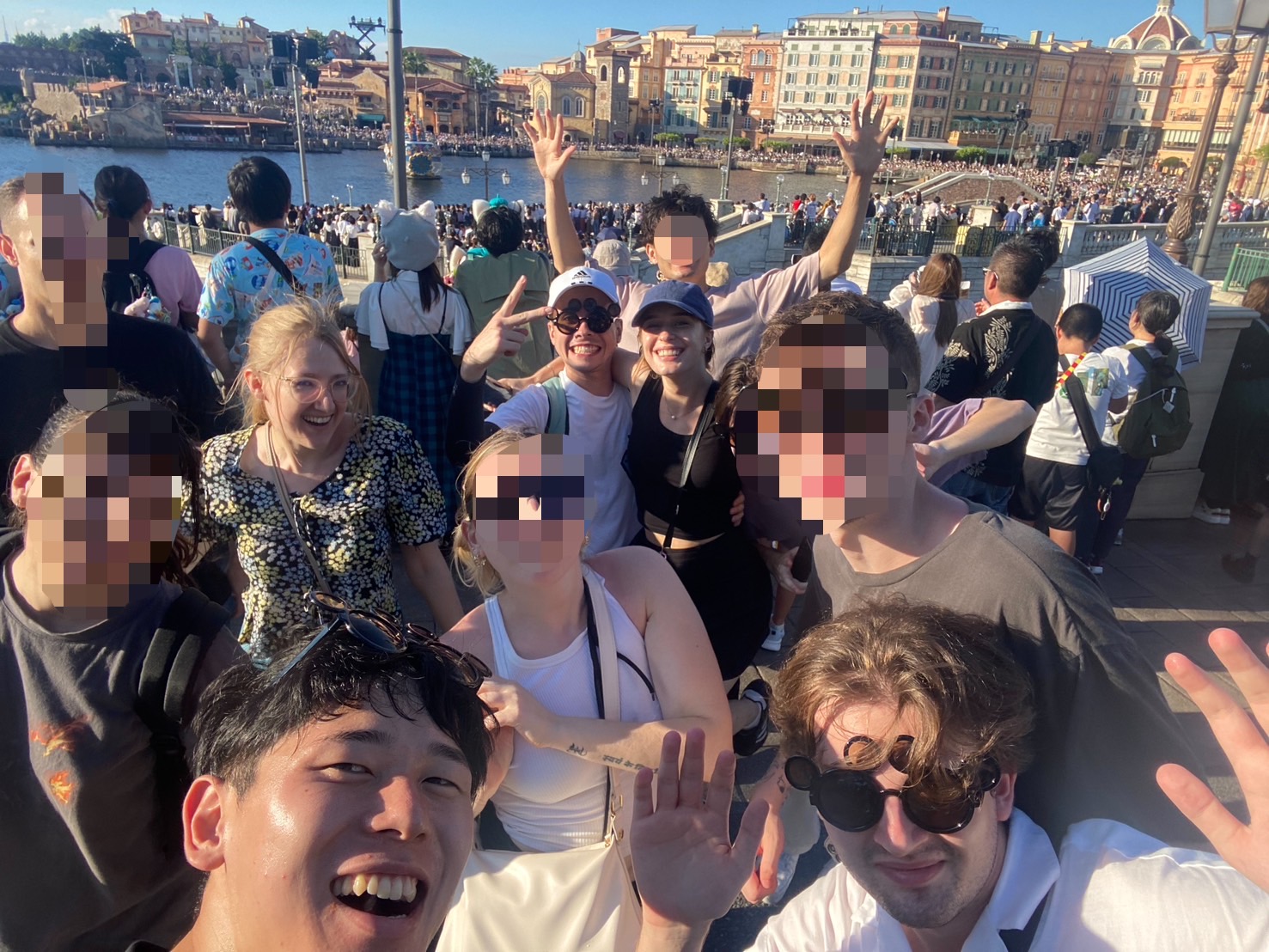 “There was this one time someone started playing music, and suddenly we were all dancing in the queue (laughs).”
“There was this one time someone started playing music, and suddenly we were all dancing in the queue (laughs).”
Shota fondly remembers the laughter that filled their day, from sharing memories of their time at the house to playing games to pass the time while waiting for rides. “Looking back, I realize we were constantly laughing, making the most of every moment together.”
───The Ups and Downs of Community Living
“If you enjoy engaging in conversations and interacting with others, life at Ikebukuro Oyama House is incredible!” Shota exclaims, highlighting the enriching social environment the house offers.
However, he also acknowledges that the vibrant social life comes with its own set of challenges. “On the flip side, the active social scene can have its downsides. For instance, when I have work and the other housemates go out together, I can’t help but feel a bit restless… It’s kind of like feeling jealous (laughs).”
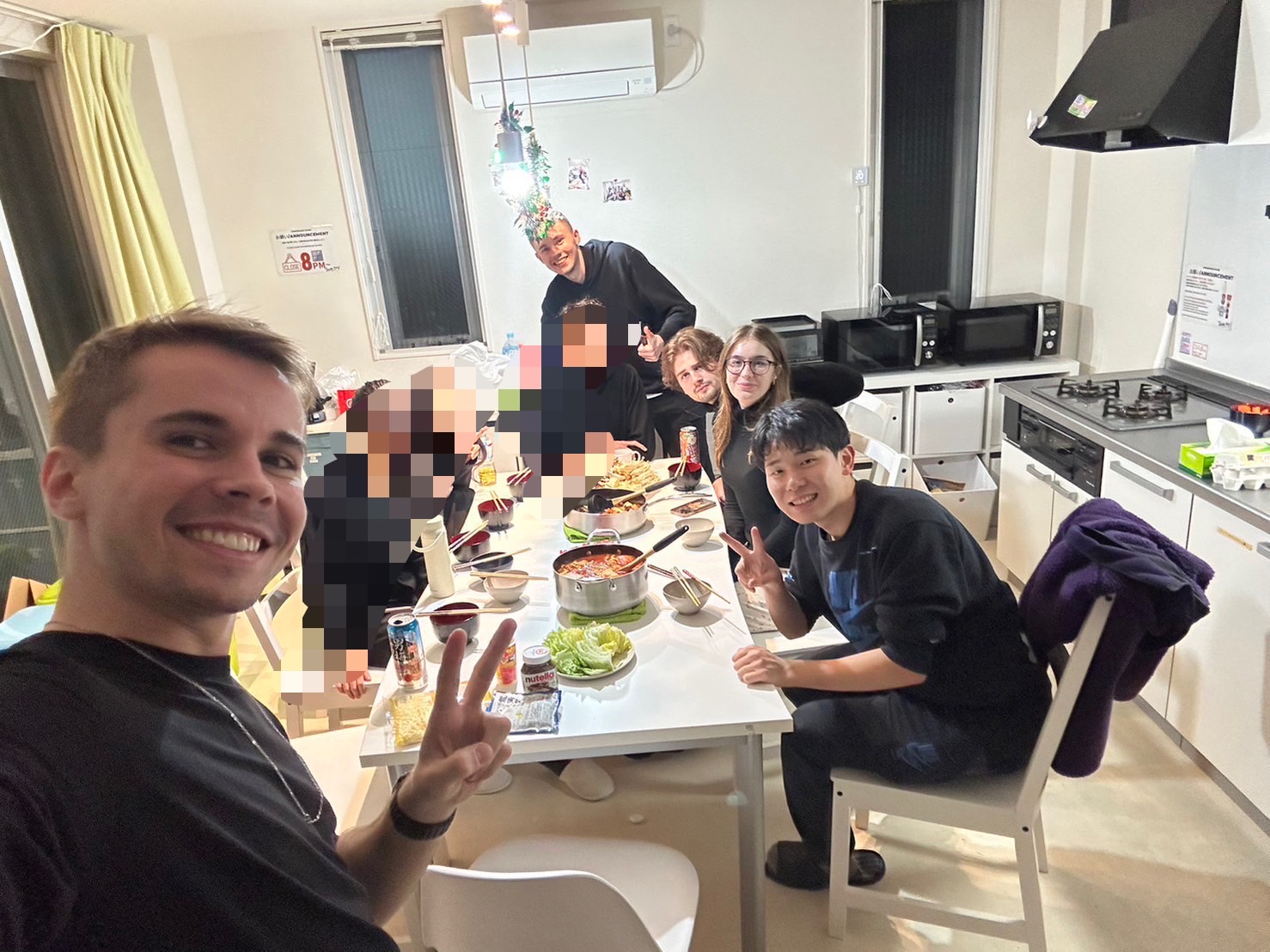
Shota shares a candid insight into the challenges of communal living, particularly when it comes to maintaining the cleanliness of a large share house. Despite the task of cleaning being distributed on a weekly rotation, he admits, “The cleaning can be quite daunting, given the size of the house. It honestly feels bothersome at times.” However, Shota finds motivation in the collective effort of the housemates, stating, “Since we all cooperate to adhere to the rules and keep the house in a clean state, I’m able to push through and do my part.”
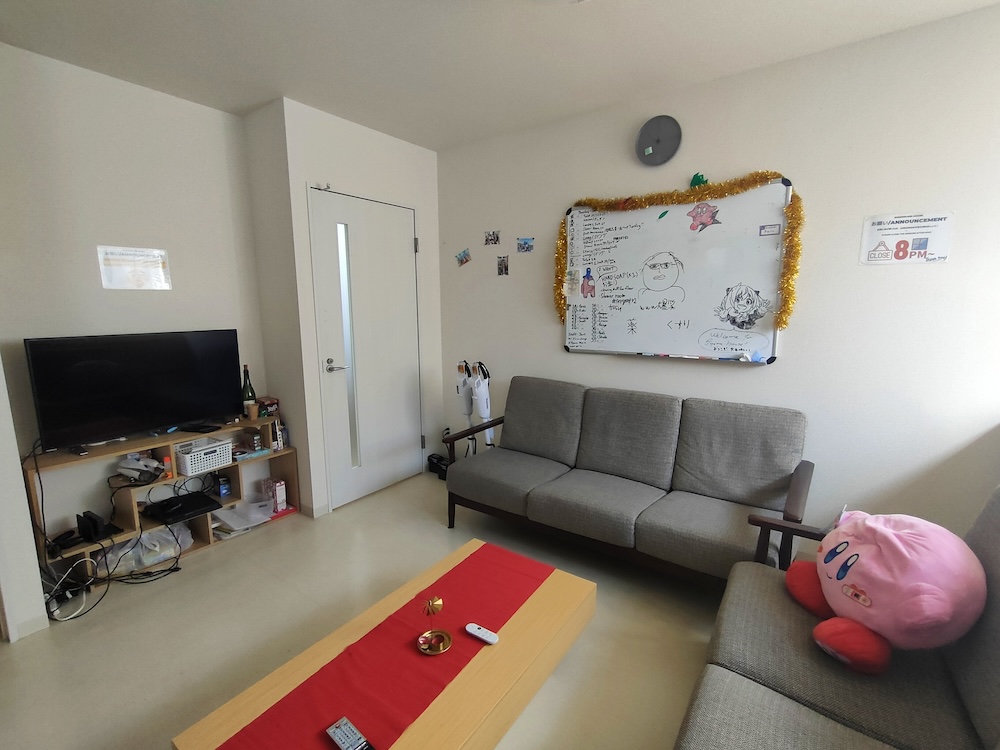 ▲Because everyone diligently fulfills their cleaning duties, the house is always kept in a clean state.
▲Because everyone diligently fulfills their cleaning duties, the house is always kept in a clean state.
He further reflects on the communal spirit, saying, “Sharing and cooperating in tasks, no matter how daunting or mundane, is a form of interaction within itself. Neglecting these simple moments, like cleaning or dishwashing, means missing out on valuable opportunities for connection. I make a conscious effort to collaborate with my housemates, seizing these chances to enhance our shared living experience.”
Oyama is a fantastic area with a variety of restaurants nearby, making it a very convenient place to live.
He shares a special anecdote that adds a personal touch to the neighborhood’s charm: “Right in front of the house, there’s a pizza place run by an owner with whom we’ve become very close. We often order pizza for our house parties, and the owner is so kind that he personally delivers the pizza to us, even though they normally don’t offer delivery service.”
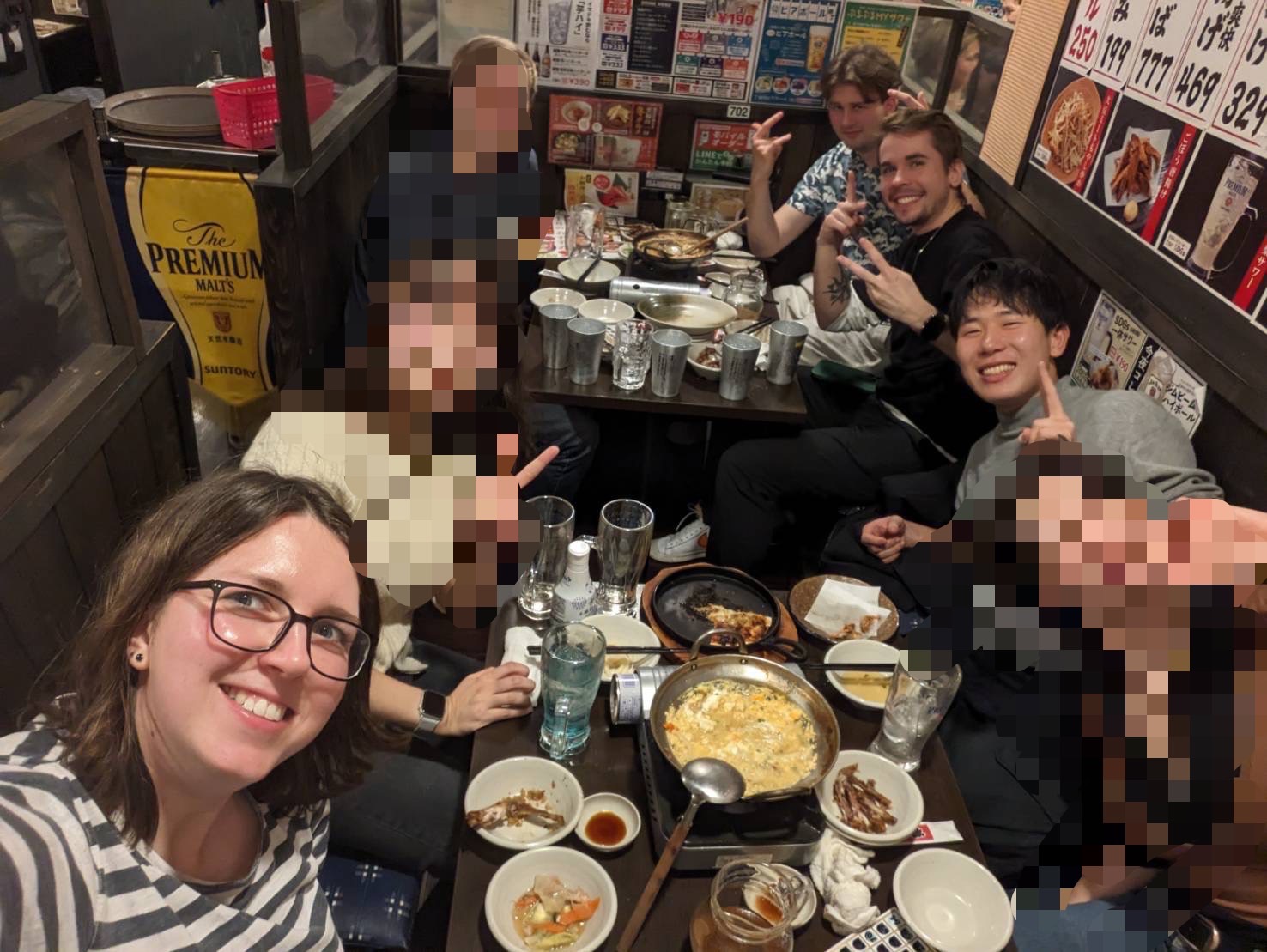
Shota shares a glimpse into the fun dining experiences with his housemates, mentioning their fondness for late-night snack runs to affordable and popular spots like Mister Donut and McDonald’s. “We often go out to buy loads of snacks from Mister Donut and McDonald’s since they’re inexpensive and open late. Then, we come back to the house and share everything. It’s a common and enjoyable routine for us!”
───The house is just a one-minute walk from Oyama Station and located along a major street, making it safe even for women.
Addressing concerns about the neighborhood’s safety, especially given its proximity to Ikebukuro, Shota provides reassurance. “The house is just a one-minute walk from Oyama Station and is located along a main street, so it feels safe even for women. Although it’s close to Ikebukuro, the area isn’t too noisy. Plus, the shopping district is well-lit until late, so I don’t think there’s any need to worry about walking at night.”
───When asked about who would most enjoy living at Ikebukuro Oyama House, Shota believes it’s an ideal place for those who love socializing.
“Anyone who enjoys interacting with others will definitely have a great time here! We often organize outings and house parties, making it especially suitable for students who can easily schedule their time around such activities.”
When asked about who would most enjoy living at Ikebukuro Oyama House, Shota believes it’s an ideal place for those who love socializing. “Anyone who enjoys interacting with others will have a great time here! We often organize outings and house parties, making it especially suitable for students who can easily schedule their time around such activities.”
He further highlights the communal aspect of the house, “The charm of Ikebukuro Oyama House lies in its common areas where housemates frequently gather, making it a bustling hub of activity. With many active members, it’s perfect for anyone looking forward to new encounters and enjoyable moments.”
Thank you, Shota, for the wonderful story!
Interested in Living at Ikebukuro Oyama House?
If Shota’s experiences have sparked your interest in living at Ikebukuro Oyama House, we encourage you to check out the house’s searching page for vacancy information and inquiries!







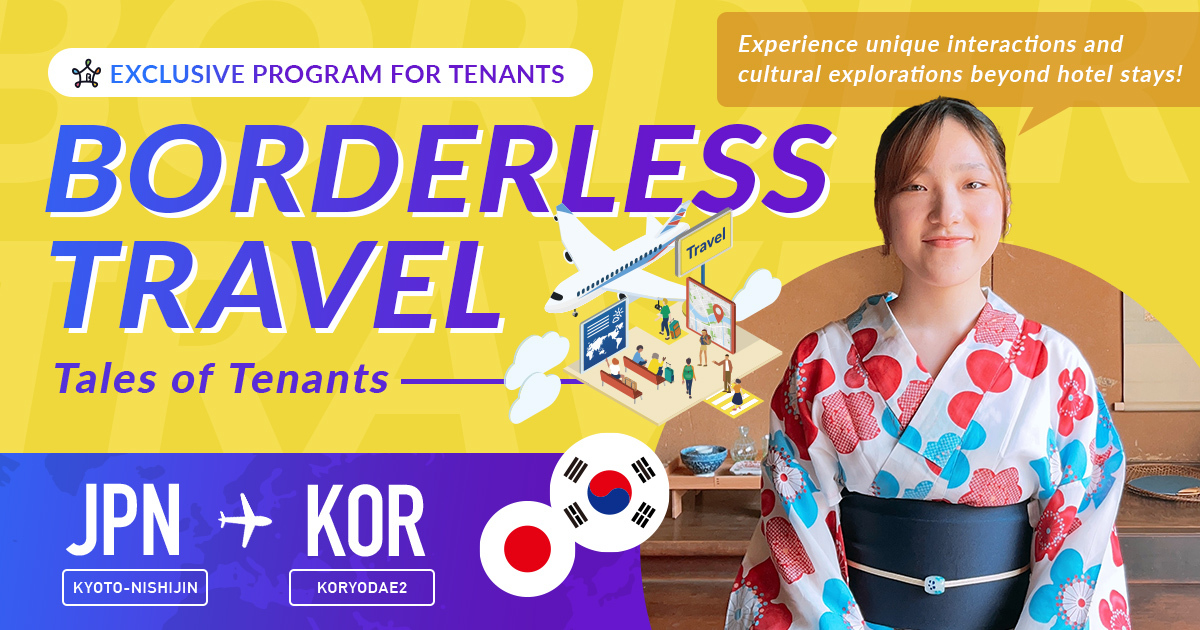
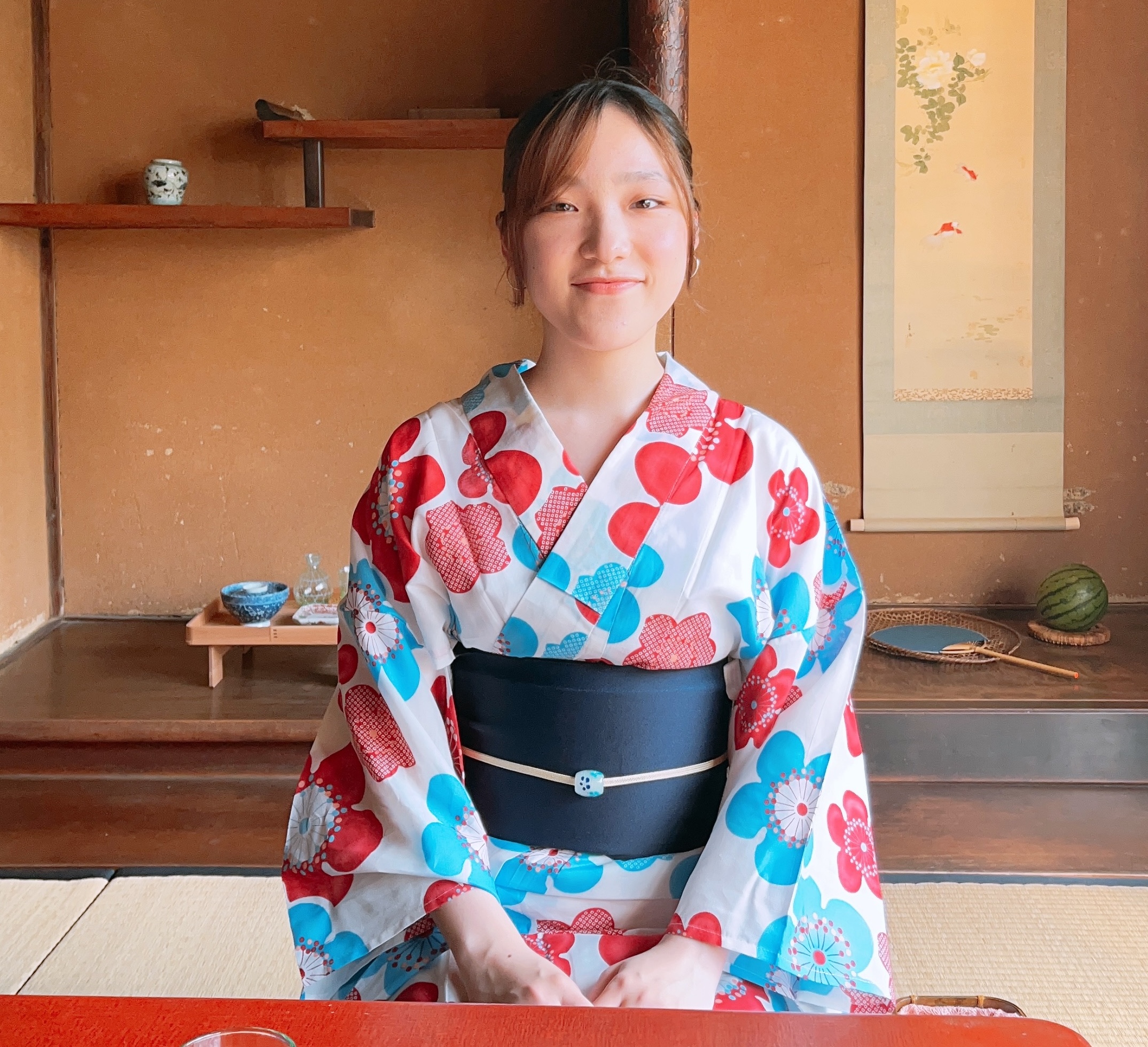 Yuzuki’s time at Nishijin House brought about a significant shift in her views on English and international interactions. She explained that her decision to move there stemmed from a desire to conquer her fear of English and engage with people from different countries.
Yuzuki’s time at Nishijin House brought about a significant shift in her views on English and international interactions. She explained that her decision to move there stemmed from a desire to conquer her fear of English and engage with people from different countries.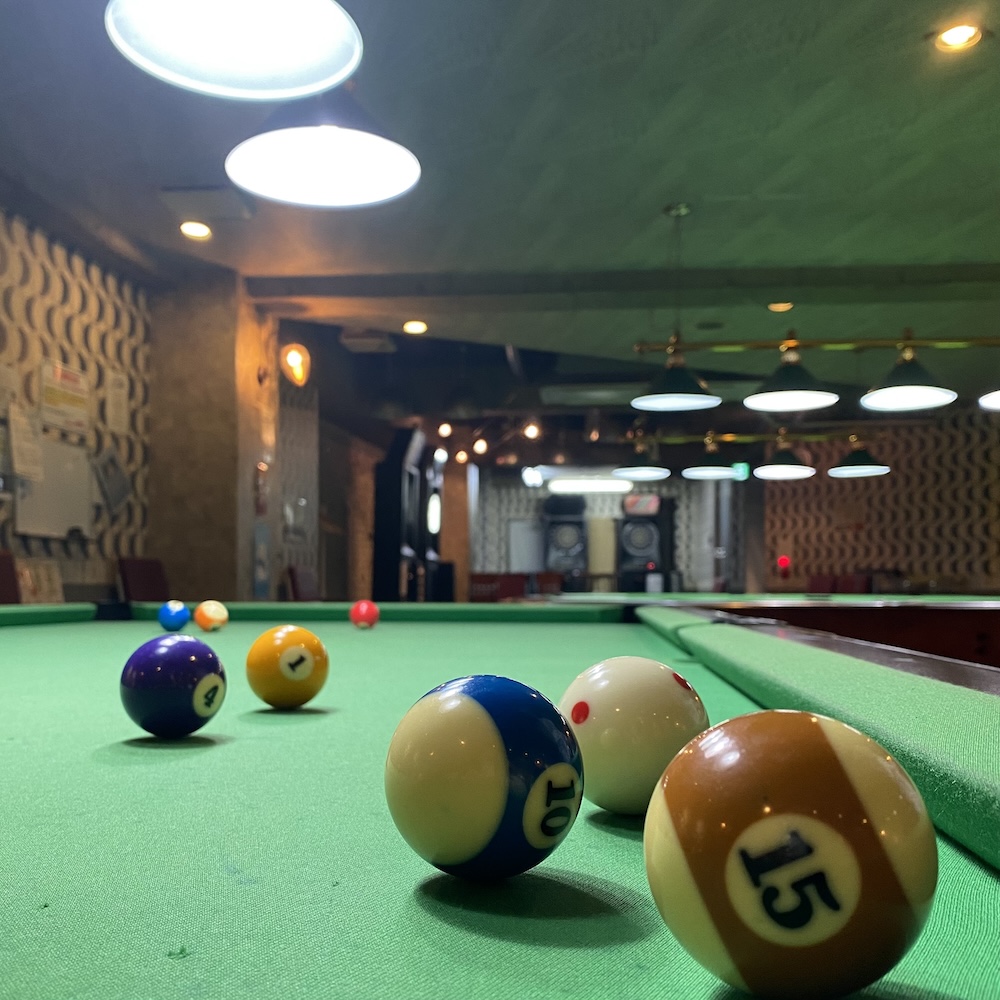


 Yuzuki: When I got to Koryodaes House, I was greeted by Robin, the staff member I had been communicating with by email. Meeting him in person really helped me settle in. He showed me around and shared some local tips and places to visit.
Yuzuki: When I got to Koryodaes House, I was greeted by Robin, the staff member I had been communicating with by email. Meeting him in person really helped me settle in. He showed me around and shared some local tips and places to visit.
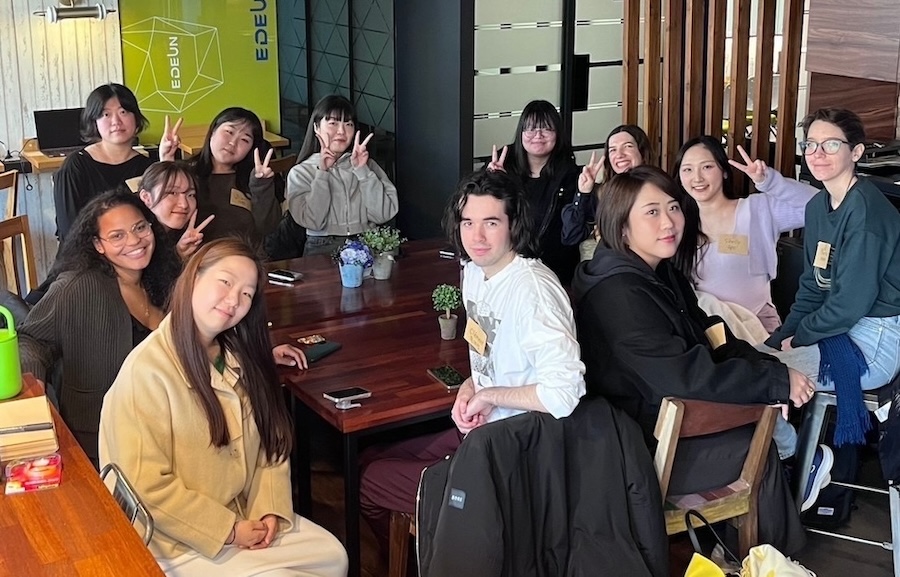


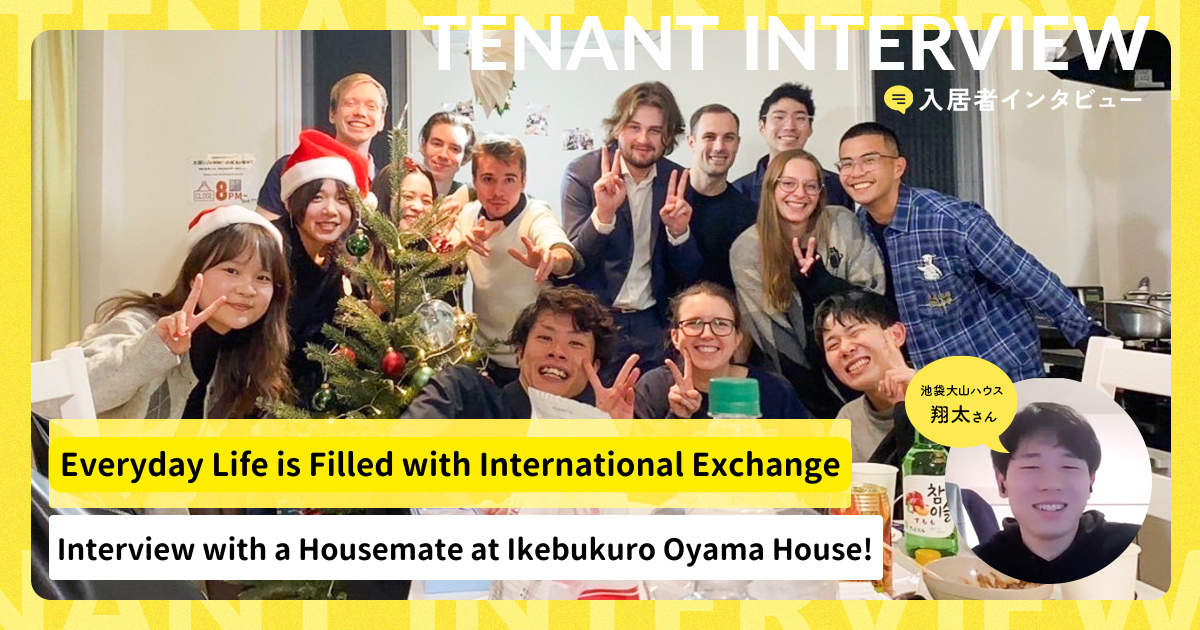


 ▲Becoming Best Friends with Mats After a Hospital Visit
▲Becoming Best Friends with Mats After a Hospital Visit ▲Rotating Cleaning Duties and Passionate Discussions
▲Rotating Cleaning Duties and Passionate Discussions “There was this one time someone started playing music, and suddenly we were all dancing in the queue (laughs).”
“There was this one time someone started playing music, and suddenly we were all dancing in the queue (laughs).”
 ▲Because everyone diligently fulfills their cleaning duties, the house is always kept in a clean state.
▲Because everyone diligently fulfills their cleaning duties, the house is always kept in a clean state.
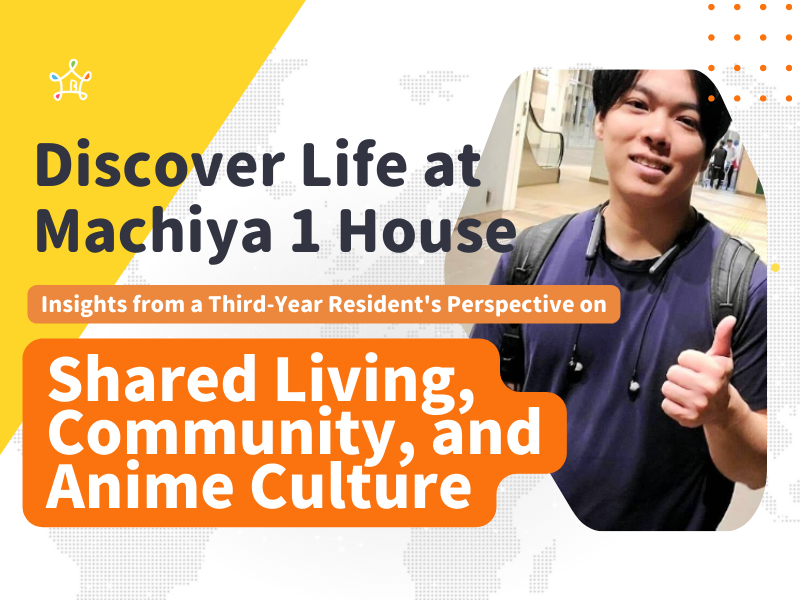
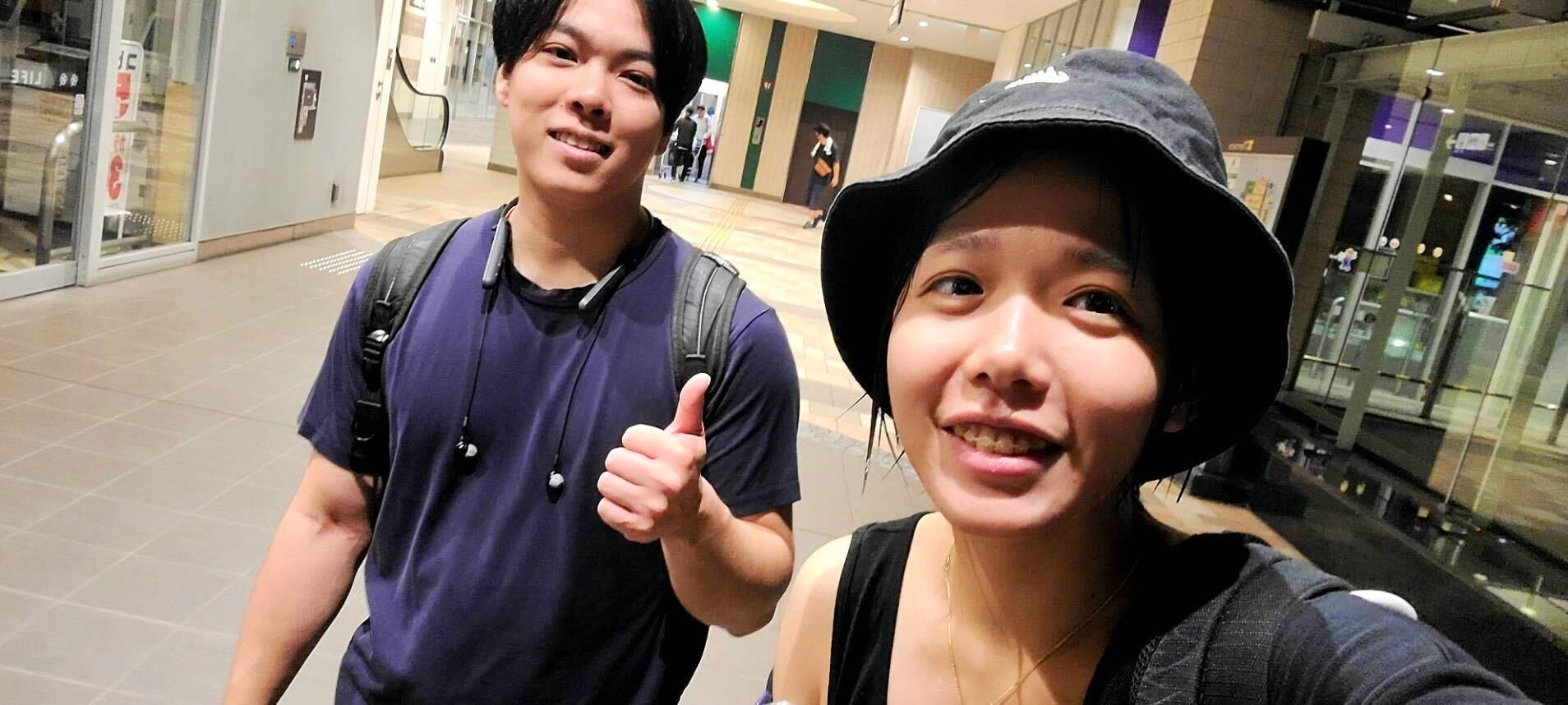
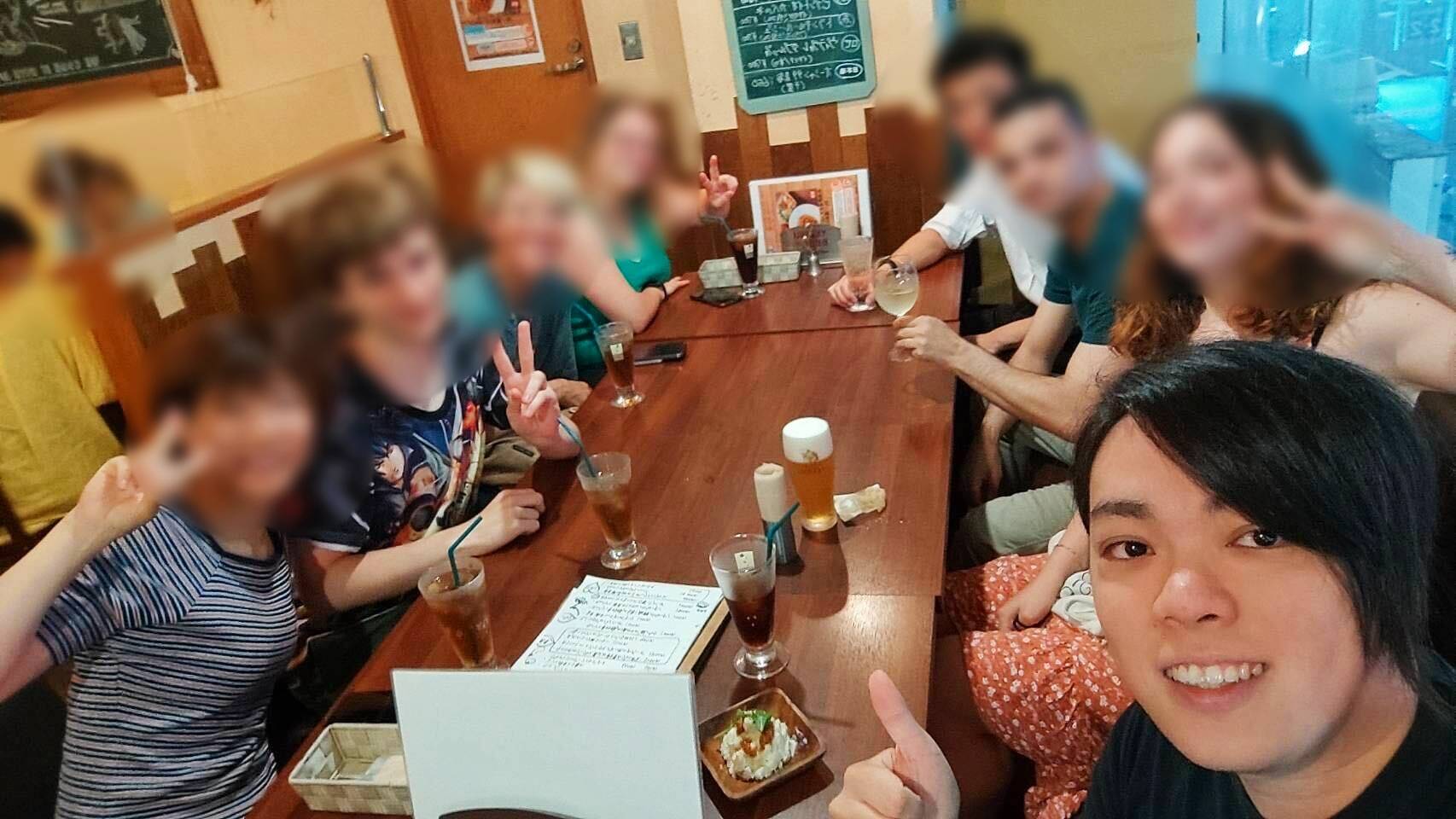 ───Who’s currently living in Machiya 1 House?
───Who’s currently living in Machiya 1 House?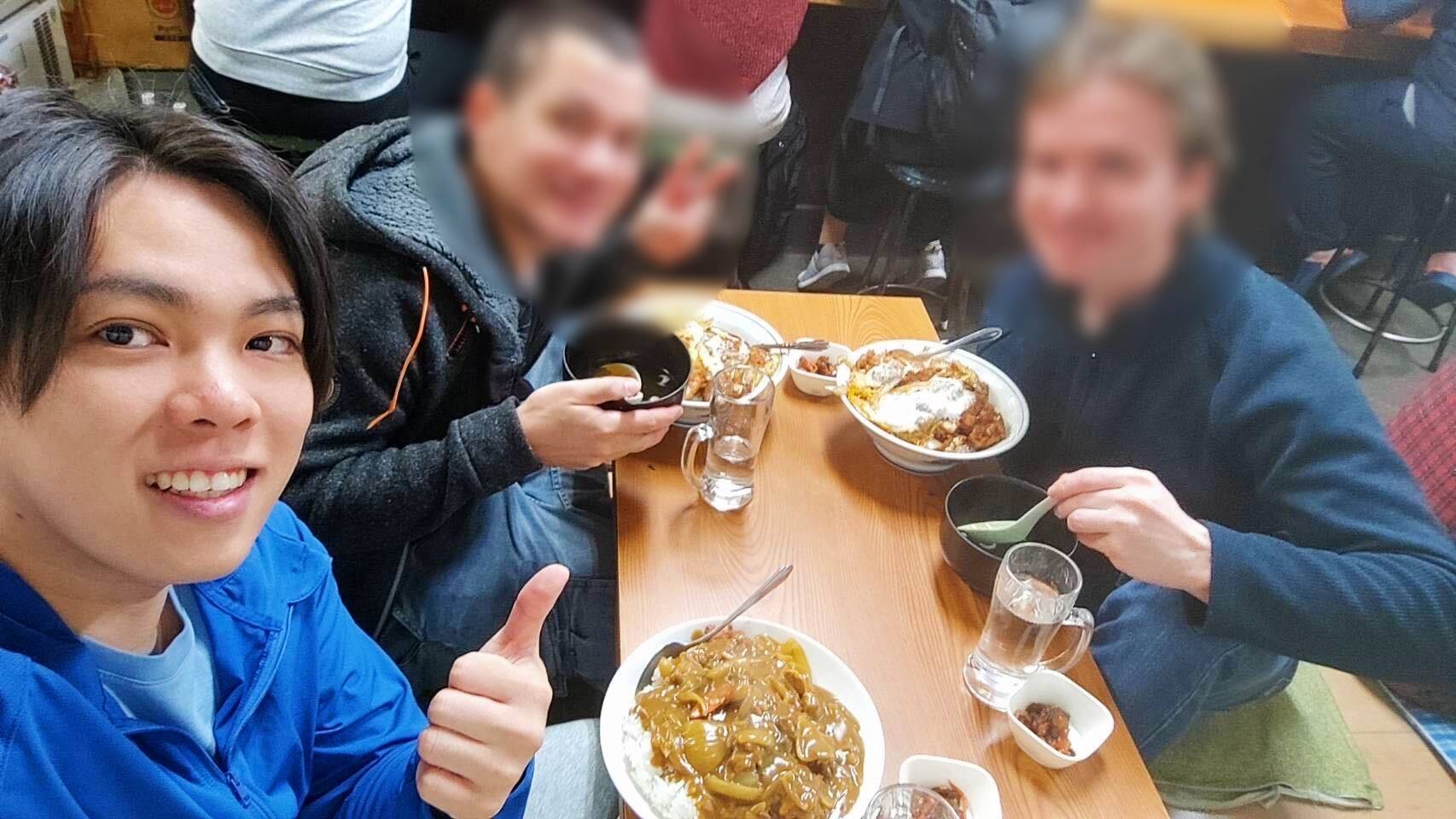
 ───What type of person would enjoy living in Machiya 1 House?
───What type of person would enjoy living in Machiya 1 House?




